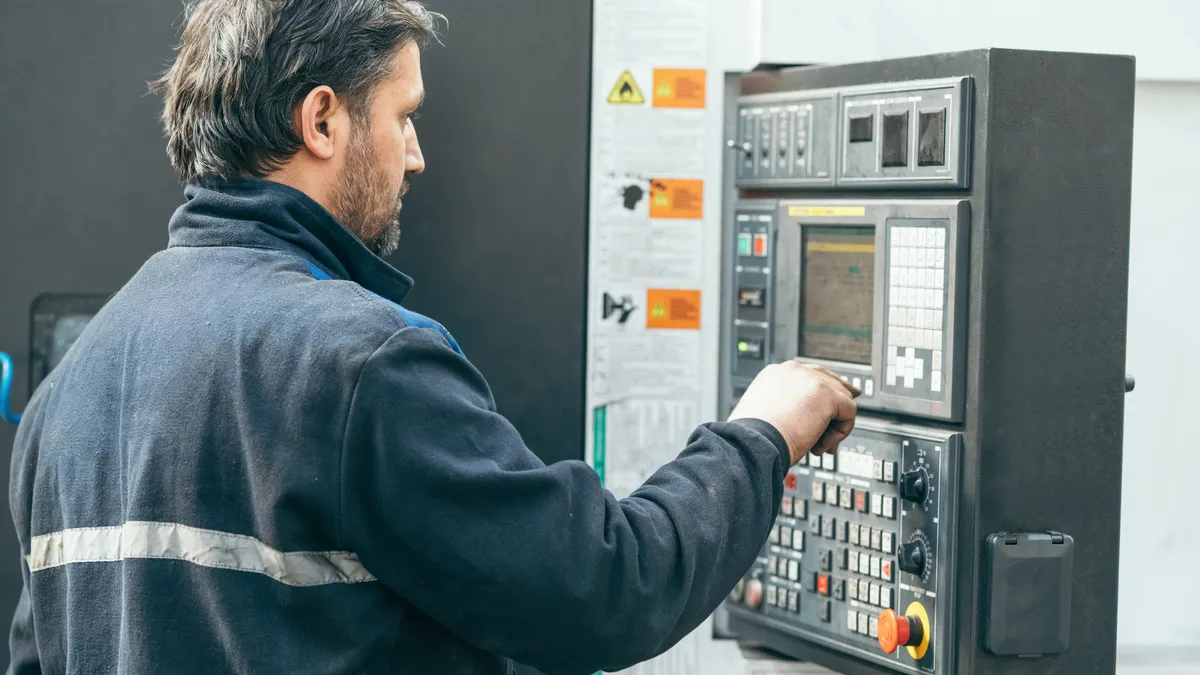Dive Brief:
- Johnson Controls has expanded the AI capabilities of its OpenBlue Enterprise Manager Suite, including customer-facing generative AI applications, more autonomous building controls and an improved user experience, the company announced Tuesday.
- OpenBlue’s expanded features will leverage AI to proactively recommend the most impactful energy savings projects, Johnson Controls said. The platform, in its new incarnation, can also provide insights that enable users to view details on building visitors across portfolios of buildings, analyze energy use based on live weather data and help users manage utility bills and reduce billing gaps through automatic error corrections, Johnson Controls said.
- These updates “pave the way for additional AI enhancements in 2025,” with a focus on globally accepted performance standards, optimized equipment performance that can generate cost savings and enhanced regulatory compliance, Johnson Controls said. The company will also add information to help building professionals comply with local legislation, “since we recognize one of their biggest challenges is aligning their data with local legislation,” Julius Marchwicki, vice president of digital product management at Johnson Controls, said in an email.
Dive Insight:
Smart building technology can help commercial and retail real estate leaders differentiate themselves in the market, with about 40% smart building leaders listing space optimization, building modernization and carbon emission reductions as drivers of smart building investments, according to an online survey of 3,445 smart buildings leaders that Johnson Controls commissioned Forrester Consulting to conduct in August 2023.
Despite these expected benefits, 73% of sustainability leaders surveyed from the retail and commercial real estate sectors said their organizations lack the technical expertise to optimize building systems using collected insights, per a February 2024 report detailing these survey findings. Only 13% of respondents said they have fully integrated building systems.
In response, the enhanced AI features in OpenBlue include major upgrades to the user experience: a focus on personalization, improved design and compliance with a higher level of accessibility standards; expanded data insights that allow users to see details on building visitors throughout portfolios; enhanced indoor air quality monitoring and sensor analytics; and leeway to automatically adjust setpoints based on fault diagnostics, Johnson Controls said in the release.
”Optimizing space occupancy is crucial in today's world, especially with hybrid and remote work arrangements. Our customers frequently request insights on how to best utilize their spaces,” Marchwicki said. “Proper space utilization ensures that employees have the right amount of space to work comfortably and productively. A well-designed workspace can enhance collaboration, concentration, and overall job satisfaction.”
The upgraded suite also introduces a generative AI advisor for energy savings and carbon reduction, according to Marchwicki. “This tool helps facility managers and sustainability leaders understand their building's performance against their chosen baselines using generative AI,” Marchwicki said. “This can provide easy to understand observations and recommendations of where to focus their efforts, and how to improve building performance by identifying the most impactful energy conservation measures.”
In addition to improving productivity through automating processes, the OpenBlue platform can provide detailed information about equipment performance and trends, ranging from individual equipment to broad portfolio-level view, per the release. It further supports digitalization of standard operating procedures that can speed up workflows and address security and service needs, the company noted.
The expanded AI features build on the measurable data-driven impacts customers currently reap with Johnson Controls’ OpenBlue suite, according to the release. OpenBlue users are benefiting from an energy spend reduction of up to 30%, a maintenance spend reduction of up to 20% and space utilization optimized by 10%, the company said.
Moving into 2024 and beyond, new applications will emerge at the “intersection of generative AI, deep learning, and predictive AI, creating innovative solutions across various sectors,” Marchwicki said. “Looking ahead, AI will play a central role in all the software we develop, whether it's for connecting assets or enterprise software solutions.”














